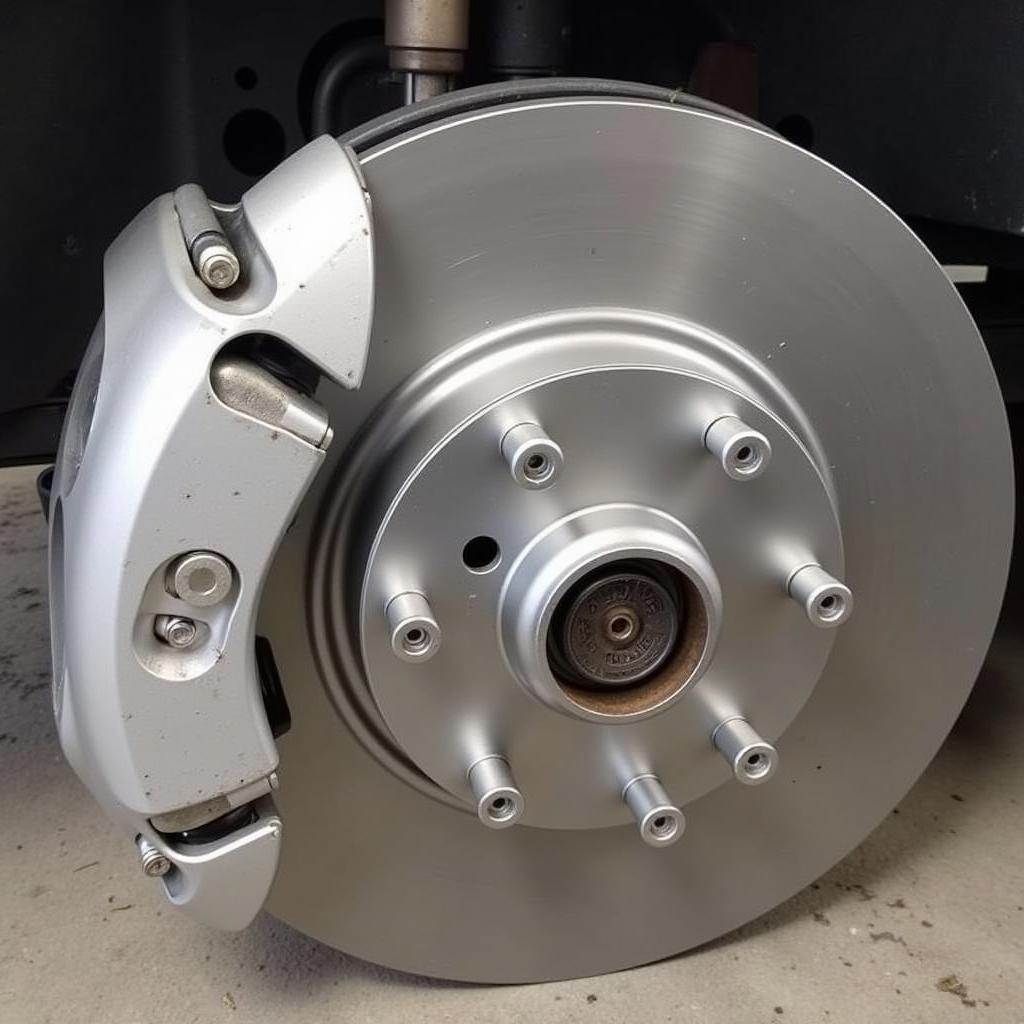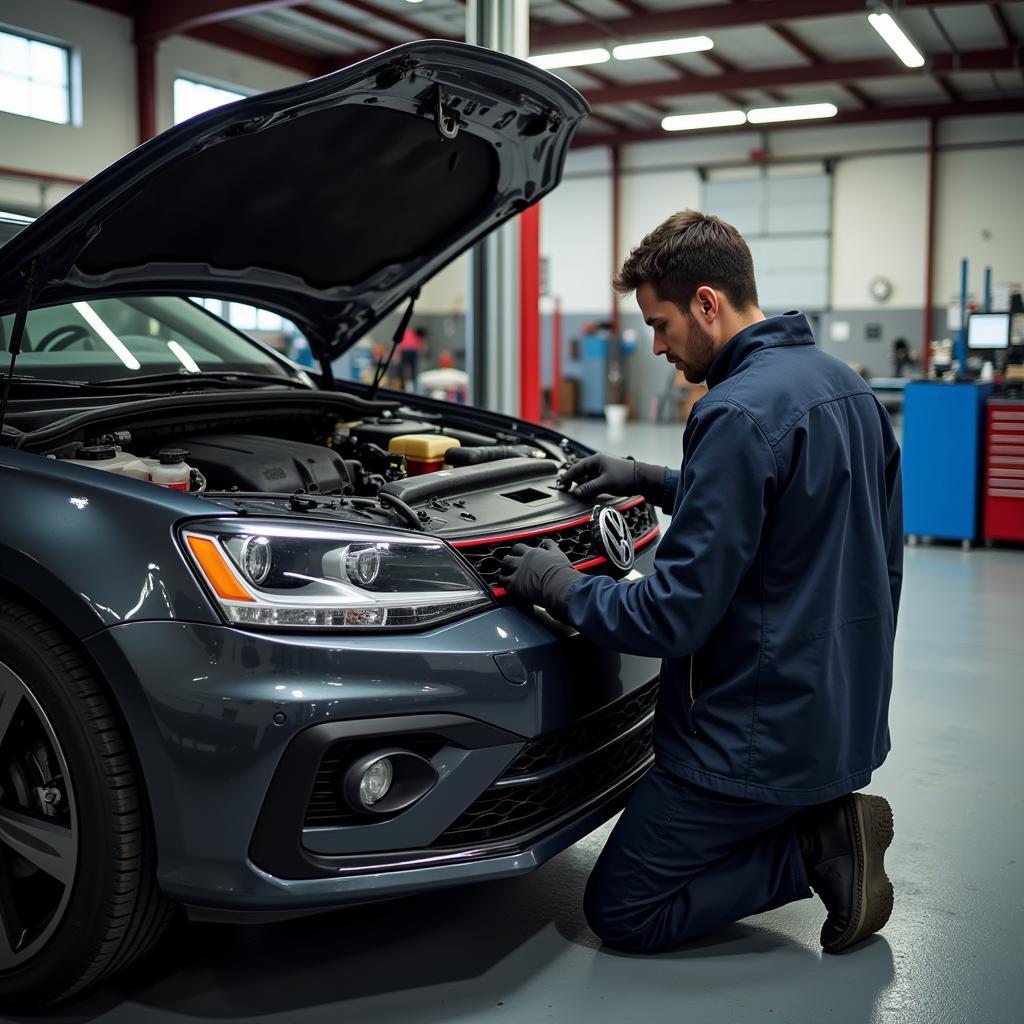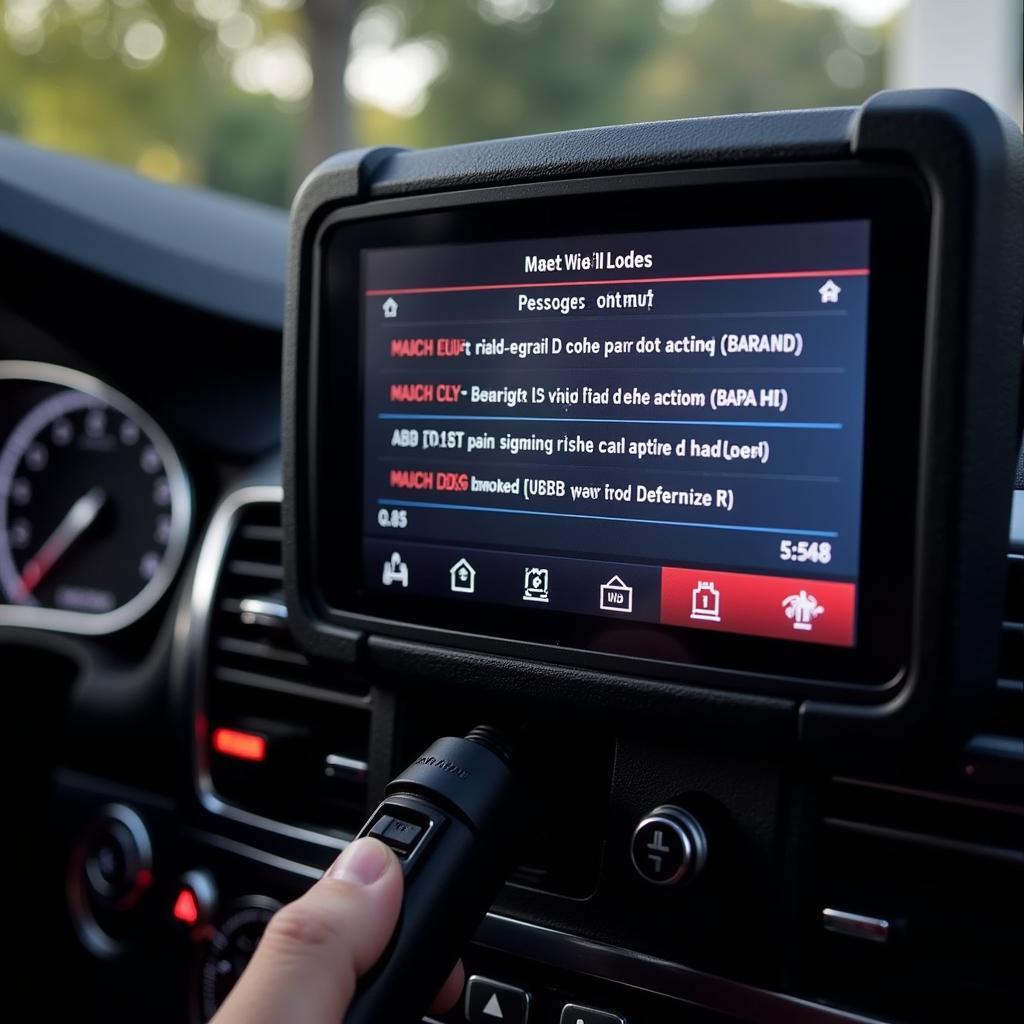The brake warning light on your VW Jetta is a crucial safety feature, illuminating when the car’s onboard computer detects an issue within the braking system. Ignoring this warning light can lead to dangerous situations, potentially jeopardizing your safety and that of others on the road. This comprehensive guide delves into the common causes behind the VW Jetta brake warning light and provides potential solutions to address them effectively.
Understanding Your VW Jetta’s Brake System
Before we dive into the causes, it’s important to understand the basics of your VW Jetta’s braking system. Modern Jettas are equipped with sophisticated braking systems that consist of several components working together seamlessly. These components include:
- Brake Pedal: The pedal you press to activate the braking system.
- Brake Booster: This component amplifies the force you apply to the brake pedal, making braking easier.
- Master Cylinder: Responsible for converting the mechanical force from the pedal into hydraulic pressure.
- Brake Lines: These lines carry the brake fluid from the master cylinder to the wheels.
- Brake Calipers and Rotors: The calipers house the brake pads and squeeze them against the rotors, creating friction to slow down or stop the vehicle.
- Brake Fluid: The fluid responsible for transmitting hydraulic pressure throughout the braking system.
Common Causes of a VW Jetta Brake Warning Light
The brake warning light on your VW Jetta can illuminate for various reasons, some more serious than others. Here are some of the most common culprits:
1. Worn Brake Pads
Brake pads are designed to wear down over time. When they become too thin, a sensor embedded within the pad triggers the warning light. This is a normal part of brake maintenance, and replacing the pads will typically resolve the issue.
2. Low Brake Fluid Level
Brake fluid is the lifeblood of your car’s braking system. If the fluid level drops below a certain point, air can enter the lines, reducing braking efficiency and triggering the warning light. This could indicate a leak in the system, requiring immediate attention.
3. Faulty Brake Light Switch
The brake light switch activates your brake lights when you press the pedal. A malfunctioning switch can disrupt this process, leading to the brake warning light illuminating. In some cases, the brake lights might not function correctly either.
4. ABS Sensor Issues
Anti-lock Braking System (ABS) sensors monitor the speed of each wheel and prevent them from locking up during hard braking. If an ABS sensor malfunctions or gets covered in dirt, it can send incorrect signals to the car’s computer, triggering the warning light.
 Location of an ABS sensor on a VW Jetta
Location of an ABS sensor on a VW Jetta
5. Problems with the Master Cylinder
As mentioned earlier, the master cylinder is crucial for generating hydraulic pressure. If the master cylinder fails or develops internal leaks, it can compromise the entire braking system, leading to the warning light and a significant decrease in braking performance.
6. Electrical Faults
Like any other system in your car, the braking system relies on electrical components. Faulty wiring, a blown fuse, or a problem with the instrument cluster can all contribute to a false brake warning light.
Troubleshooting the Brake Warning Light on Your VW Jetta
While it’s best to consult a qualified mechanic, especially for complex issues, here are some steps you can take to troubleshoot the brake warning light on your VW Jetta:
- Check Your Brake Fluid Level: This is the easiest and most accessible step. Locate the brake fluid reservoir under the hood and check if the fluid level is between the minimum and maximum marks.
- Inspect Your Brake Pads: If you have the necessary tools and experience, you can remove a wheel and visually inspect the thickness of your brake pads.
- Listen for Unusual Noises: Pay attention to any screeching, grinding, or clicking sounds coming from the brakes, as these can indicate worn pads or other issues.
- Check Your Brake Lights: Ask someone to press the brake pedal while you check if both brake lights are functioning correctly.
When to Seek Professional Help
If you’re uncomfortable performing any of the troubleshooting steps or suspect a more serious issue, it’s crucial to seek professional help immediately. Driving with a compromised braking system is extremely dangerous and can lead to accidents.
 VW Jetta at a mechanic shop
VW Jetta at a mechanic shop
Preventative Maintenance for a Healthy Braking System
Regular maintenance is key to preventing brake problems and ensuring your VW Jetta remains safe on the road. Here are some preventative measures:
- Regular Brake Inspections: Have your brakes inspected by a qualified mechanic at least once a year or as recommended in your owner’s manual.
- Timely Brake Pad Replacement: Replace your brake pads as soon as they wear down to the recommended thickness.
- Brake Fluid Flushes: It’s recommended to flush and replace your brake fluid every 2-3 years or as specified by VW.
- Address Warning Lights Promptly: Never ignore the brake warning light. Seek professional help as soon as possible to diagnose and resolve the issue.
Conclusion
The brake warning light on your VW Jetta is a serious safety concern that should never be ignored. Understanding the common causes and taking prompt action can help prevent further damage, costly repairs, and most importantly, keep you safe on the road.
Remember, when it comes to your car’s braking system, erring on the side of caution and seeking professional assistance is always the best course of action.

